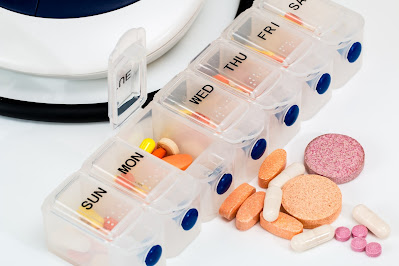Nootropic Supplements: Your Shortcut to Enhanced Focus, Memory, and Mental Clarity|| Nootropic supplements.
Nootropic supplements and their effects
Nootropic supplements have grown in popularity in recent years as more people look for ways to sharpen their minds and perform better overall. These dietary supplements, commonly referred to as "smart drugs," are promoted as being able to improve a variety of cognitive abilities like motivation, memory, focus, and creativity. But what exactly are nootropics and are they effective.?
What Are Nootropic Supplements?
Supplements known as nootropics are thought to increase mental performance and brain health. They are frequently advertised as dietary supplements and can be either synthetic or natural ingredients. The most popular varieties of nootropics are:
Racetams: A family of artificial substances with structural similarities to the neurotransmitter GABA. They are thought to improve memory, concentration, and focus.
Acetylcholine, a neurotransmitter that is vital for memory
and learning, is produced in large part by the natural substance choline.
Adaptogens are natural substances that are thought to boost mental performance and lower levels of stress.
Essential fatty acids called omega-3 fatty acids are crucial for the health and function of the brain.
Caffeine is a natural stimulant that can help with focus and
alertness.
Do Nootropic Supplements Work?
Researchers and academics are still debating whether
nootropic pills are effective. While some research has suggested that various
nootropics can improve cognitive performance, other studies have revealed no
appreciable advantages.
For instance, research in the scientific journal Psychopharmacology discovered that healthy participants' memory and attention were improved by the racetam chemical piracetam. Omega-3 fatty acids increased cognitive performance in older persons with mild cognitive impairment, according to another study in the journal PLOS One.
Other research, however, has not discovered any appreciable cognitive advantages from nootropic substances. For instance, choline did not improve cognitive abilities in healthy young adults, according to a study that was published in the International Journal of Psychopharmacology.
It's vital to remember that depending on the user and the particular substance being used, the outcome of nootropic pills can change. Furthermore, there is a chance of adverse effects and combinations with other medications, and the long-term consequences of these pills are not fully understood.
Are Nootropic Supplements Safe?
When taken as indicated, nootropic pills are generally regarded as safe. However, certain individuals may develop negative side effects like nausea, sleeplessness, and headaches. Before using any new supplement, it's crucial to see a healthcare professional because some nootropics may interfere with other medications.
Noting that not all nootropic pills are created equally is also crucial. It's crucial to choose a recognized brand and carefully read the label because some products can include contaminants or inconsistent dosages.
List of nootropic supplement:
1. Racetams (Piracetam, Aniracetam, Oxiracetam,
Phenylpiracetam)
2. Choline (Alpha-GPC, CDP-Choline, Choline Bitartrate)
3. Adaptogens (Ashwagandha, Rhodiola Rosea, Bacopa Monnieri,
Holy Basil)
4. fatty acids omega-3 (Fish oil, Krill oil)
5. L-Theanine and coffee (often combined)
6. Nardil and Modafinil
7. Ginseng with Lion's Mane Mushrooms (Panax Ginseng, American
Ginseng, Siberian Ginseng)
8. ginseng lupulin
9. Creatine
10. Phosphatidylserine
11. Acryl L-Tyrosine (NALT)
12. Vinpocetine Huperzine
13. Mucuna Pruriens
14. Theacrine
15. PQQ (Pyrroloquinoline
Quinone)
16. Citicoline (CDP-Choline)
17. Adenosyl L-Carnitine (ALCAR)
18. UDP, uracil monophosphate (UMP)
List of alternative options to nootropic supplements:
Exercise regularly: Regular physical activity can enhance
mental health overall, reduce stress, and enhance cognitive functioning.
Healthy diet: A nutritious diet that is high in vitamins, minerals, and omega-3 fatty acids can improve cognitive health and brain function.
Meditation and mindfulness exercises: It has been demonstrated
that mindfulness exercises and meditation lower stress, increase concentration,
and improve cognitive function.
Cognitive-behavioral therapy (CBT) is a type of talk therapy
that can assist people in recognizing and altering harmful thought patterns and
behaviors that may be impairing cognitive function.
Sleep hygiene: Getting enough sleep and maintaining
excellent sleeping habits might enhance memory and mental health in general.
Puzzles and mental games are two types of brain games that
can aid in improving memory and cognitive function.
Social interaction: Engaging in social activities and
upholding social bonds can lower stress levels, elevate mood, and enhance
general cognitive health.
Techniques for reducing stress: Engaging in stress-reduction
activities like taking deep breaths, yoga, or tai chi can help lower anxiety
and enhance cognitive function.
It's crucial to remember that, even though these
alternatives might not have the same quick and direct effects as nootropic
substances, they can nevertheless have profoundly great effects on mental and
cognitive health.
Conclusion:
In conclusion, nootropic pills have the potential to boost mental performance and brain health, yet scientists continue to disagree about how helpful they are. Although certain substances have shown promise in enhancing memory, focus, and other cognitive skills, it is unclear what these supplements' long-term effects will be. As with any dietary supplement, it's crucial to see a doctor before using a new item and to pick a trustworthy brand with a solid reputation for efficacy and safety.
Thanks for reading
Please like share and subscribe fore more and the latest updates,



.jpg)


0 Comments